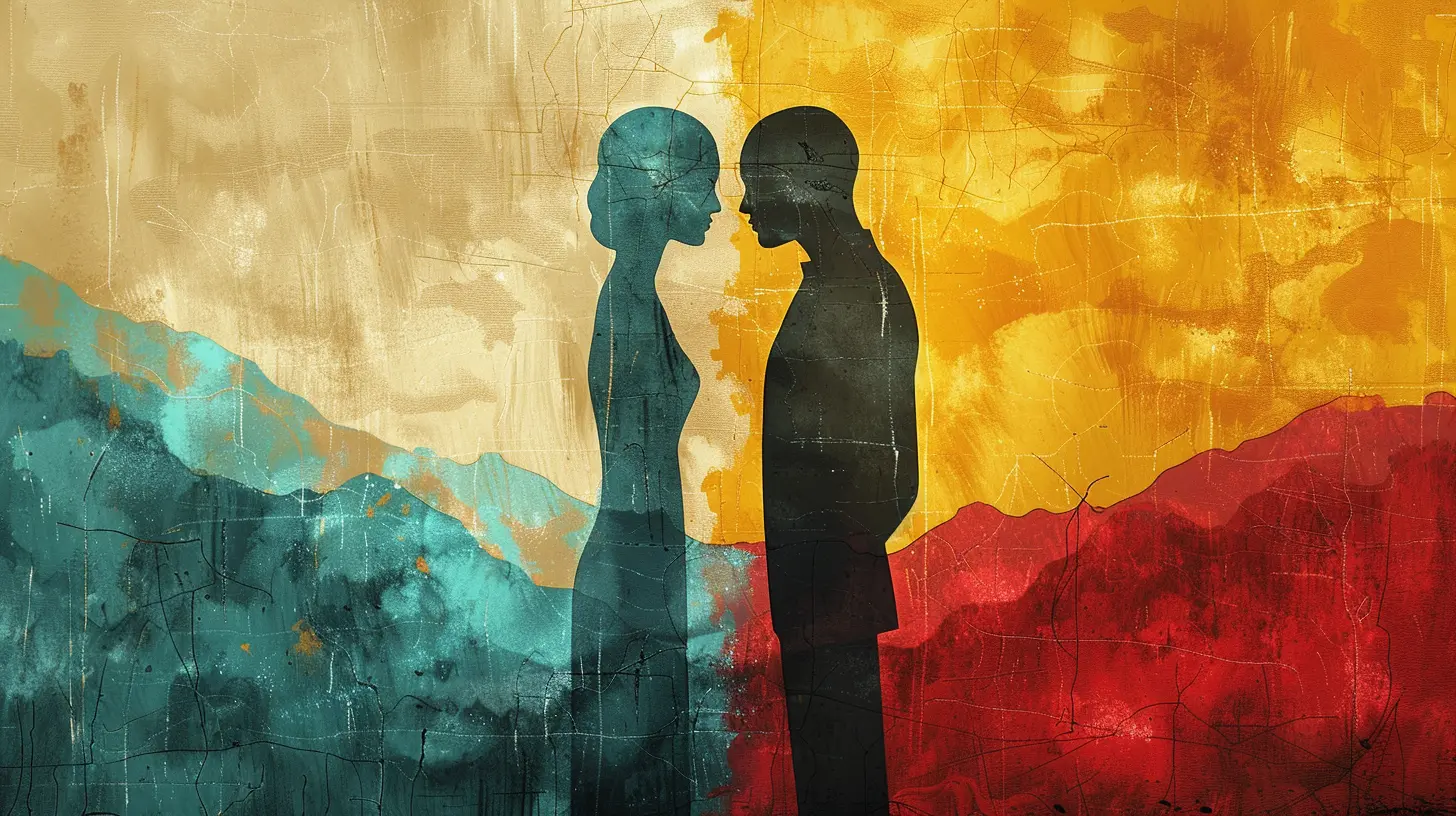Navigating Relationships While Managing Bipolar Disorder
2 October 2025
Let’s face it — relationships are tough. Even in the best of circumstances, maintaining a healthy connection with someone else takes work. Now, throw bipolar disorder into the mix, and things can get a little more complicated. But here’s the good news: it’s absolutely possible to build and sustain strong relationships while managing bipolar disorder. In fact, with a little self-awareness, open communication, and the right tools, relationships can thrive.
In this article, we’re going to talk about how you can navigate relationships – whether romantic, familial, or platonic – while living with bipolar disorder. We’ll get real about the challenges, but also the wins. If you or someone you care about is dealing with bipolar, grab a coffee and let’s chat.
Understanding Bipolar Disorder (Without the Medical Jargon)
First thing’s first: what exactly are we dealing with here?Bipolar disorder is a mood disorder that causes extreme shifts in mood, energy, and behavior. These shifts include periods of mania (highs) and depression (lows). It’s not just about being “moody” — when these episodes hit, they can impact everything from sleep patterns and judgment to one’s ability to socialize and function day-to-day.
There are different types of bipolar disorder (like Bipolar I, Bipolar II, and Cyclothymia), but they all involve mood swings that go beyond the normal ups and downs most people experience.
Why does this matter in relationships? Because when your moods are swinging all over the place, it can feel like you’re on a roller coaster—and your partner, friend, or family member is strapped into the seat next to you.
The Relationship Roller Coaster: How Bipolar Disorder Affects Relationships
Let’s get real. Bipolar disorder doesn’t just affect the person who has it — it touches everyone in their orbit. It can be hard for both sides.1. Emotional Highs and Lows
When you’re manic, you might feel invincible. You talk a mile a minute, take risks, and feel like you don’t need sleep. Sounds fun, right? Until it’s not.Then come the lows. Depression isn’t just sadness; it’s crushing. It’s isolation, hopelessness, and feeling like you're not enough.
Now imagine being in a relationship through all of this. That emotional whiplash can strain even the strongest bond.
2. Communication Breakdowns
When your thoughts race or your energy crashes, it can be tough to express what’s really going on. Misunderstandings happen. You might say things you don’t mean. Or worse, say nothing at all.3. Trust and Stability
Mood episodes, especially if untreated or unmanaged, can lead to unpredictable behavior. This unpredictability can erode trust — one of the pillars every relationship needs.But here’s what’s important: none of this means relationships can’t work. It just means they require extra care.
Let’s Talk Self-Work First
Before diving into “relationship advice” stuff, let’s start with you — the person managing bipolar disorder. Why? Because how you manage your condition plays a huge role in how you relate to others.1. Know Your Patterns
The more you understand your bipolar patterns, the better you can catch early warning signs and avoid full-blown episodes. Journaling, mood tracking, and regular check-ins with a therapist can help you see the big picture.Think of it like being your own emotional meteorologist — you can often forecast storms before they hit.
2. Stick to Your Treatment Plan
This might seem obvious, but it’s worth repeating: stay consistent with medications, therapy, sleep habits, and anything else that helps maintain stability. When you prioritize your health, your relationships benefit too.3. Be Kind to Yourself
You’re not broken. You’re human. Managing bipolar isn’t a flaw — it’s a strength. The more compassion you show yourself, the more you’ll have to give to others.
Communication: Your Secret Weapon
Want to know the number one relationship superpower when bipolar is part of the equation? Honest, open communication.1. Be Upfront Early On (Especially in Romantic Relationships)
When you’re dating, it can be tempting to hide your diagnosis out of fear. But honesty tends to build stronger foundations than secrecy.You don’t need to spill everything on the first date, but when your relationship starts getting serious, it’s time to talk. Explain what bipolar means for you. Share your triggers. Let them know how they can support you — and what’s not helpful.
2. Let People Know How to Help (And When to Step Back)
Sometimes what you need most is space. Other times, it’s a listening ear or a little check-in. The people in your circle aren’t mind readers, so teach them how to navigate your moods with you, not around you.3. Validate Their Experience Too
Being on the other side of bipolar can be tough. If your partner or loved one expresses their struggles, don’t dismiss them. Let them share their feelings without turning it into a blame game. You’re both on this journey together.Relationship Tips for Romantic Partners
Alright, lovebirds — this section’s for you. Romantic relationships can be incredibly fulfilling, but when bipolar disorder enters the picture, it’s important to lay some groundwork.1. Create a Relationship Safety Plan
Think of it like a fire drill, but for emotional emergencies. What happens when symptoms start creeping in? Maybe you agree that your partner will check in more often. Or that you’ll reach out to your therapist. Planning ahead reduces panic when things get tough.2. Keep a Routine Where You Can
Stability is like gold when you’re managing bipolar. As a couple, try to keep regular habits — eating meals together, sleeping on a schedule, making time for connection. These little anchors can go a long way.3. Don’t Define the Relationship by the Disorder
Remember this: your relationship is not bipolar. You are not bipolar. You have bipolar disorder — and you’re also funny, loving, creative, and every other thing that makes you you. Make space for joy, silliness, and passion. Mental illness doesn’t get to steal the spotlight.What Friends and Family Need to Know
Supportive friends and family can be a lifeline. But they may not always know what to do. Here’s how they can show up for you — and how you can help guide them.1. Educate Them (Gently)
The more your loved ones understand bipolar disorder, the less likely they are to jump to conclusions. Share resources, offer to talk things through, and be patient as they learn.2. Set Boundaries
Sometimes your energy is low. Sometimes you can’t talk. That’s okay. Just let people know what you need — and don’t feel guilty about protecting your space.3. Appreciate the Good Ones
Good friends and family members — the ones who stick around during the highs and lows — are pure gold. Say thank you. Let them know they matter. Love is a two-way street.Managing Conflict in Relationships
Conflict’s gonna happen. Bipolar or not. But how you deal with it makes all the difference.1. Take Time-Outs When Things Get Heated
When emotions are running high, it’s okay to take a break. Step away, breathe, gather your thoughts. You can revisit the conversation when things cool down.2. Avoid Blame Language
Instead of saying “You always…” or “You never…”, try, “I feel…” or “What I need is…” These small shifts keep conversations from turning into battles.3. Repair After Ruptures
We all mess up. It’s part of being human. If you’ve hurt someone during a mood episode — or anytime — own it, apologize sincerely, and talk about how to move forward.When You’re the Partner: Tips for Supporting Someone with Bipolar Disorder
Let’s flip the perspective. If you love someone with bipolar disorder, here are some things that can help you show up with empathy and strength:- Learn about the condition: Knowledge is power. The more you understand, the more supportive you can be.
- Don’t take mood swings personally: It’s not about you, even when it feels like it is.
- Encourage treatment and self-care: Gently support routines and plans that promote stability.
- Take care of yourself too: You can’t pour from an empty cup. Therapy or support groups can go a long way.
Final Thoughts
Navigating relationships while managing bipolar disorder isn’t always smooth sailing, but it’s far from impossible. With effort, honesty, patience, and love — both for yourself and those around you — beautiful, lasting connections are more than just possible. They’re within reach.Relationships are like gardens. They need watering, sunlight, and a bit of TLC. Bipolar disorder may occasionally bring storms, but with the right support and care, your relationships can still blossom.
So keep showing up. Keep trying. And most of all, keep believing that you are worthy of love, just as you are.
all images in this post were generated using AI tools
Category:
Mental IllnessAuthor:

Gloria McVicar
Discussion
rate this article
1 comments
Solaria Jacobs
This article adeptly highlights the complexities of maintaining relationships with bipolar disorder. It emphasizes the importance of communication, understanding, and self-awareness, offering valuable insights for both individuals and their loved ones.
October 18, 2025 at 4:39 PM

Gloria McVicar
Thank you for your thoughtful comment! I'm glad you found the insights on communication and understanding valuable for maintaining relationships with bipolar disorder. Your feedback is much appreciated!


